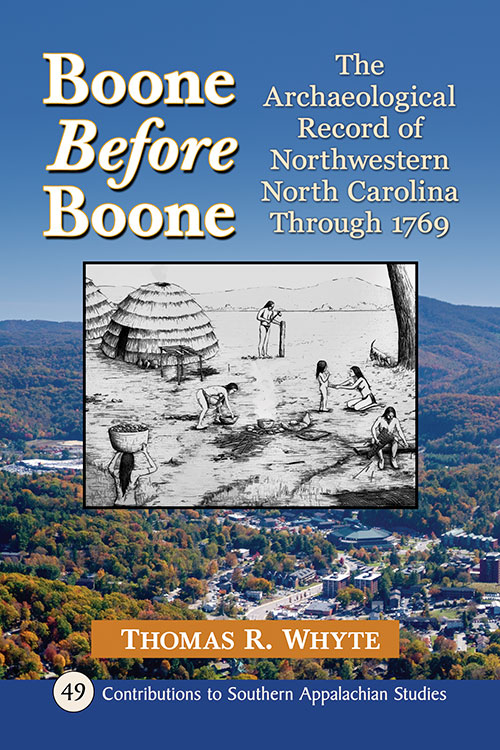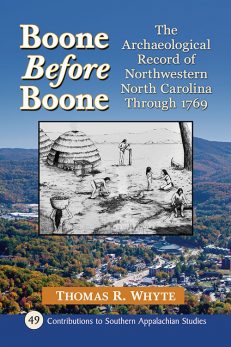Boone Before Boone
The Archaeological Record of Northwestern North Carolina Through 1769
$29.95
In stock
About the Book
Native Americans have occupied the mountains of northwestern North Carolina for around 14,000 years. This book tells the story of their lives, adaptations, responses to climate change, and ultimately, the devastation brought on by encounters with Europeans. After a brief introduction to archaeology, the book covers each time period, chapter by chapter, beginning with the Paleoindian period in the Ice Age and ending with the arrival of Daniel Boone in 1769, with descriptions and interpretations of archaeological evidence for each time period. Each chapter begins with a fictional vignette to kindle the reader’s imaginings of ancient human life in the mountains, and includes descriptions and numerous images of sites and artifacts discovered in Boone, North Carolina, and the surrounding region.
About the Author(s)
Bibliographic Details
Tom Whyte
Format: softcover (6 x 9)
Pages: 188
Bibliographic Info: 88 photos, bibliography, index
Copyright Date: 2020
pISBN: 978-1-4766-8342-3
eISBN: 978-1-4766-4136-2
Imprint: McFarland
Series: Contributions to Southern Appalachian Studies
Table of Contents
Acknowledgments x
Preface 1
Introduction 3
1. Paleoindian Period: 11,500–9,500 bce 17
2. Early Archaic Period: 8,000–6,000 bce 38
3. Middle Archaic Period: 6,000–3,000 bce 57
4. Late Archaic Period: 3,000 to 1,000 bce 75
5. Early Woodland Period: 1,000 bce–200 ce 96
6. Middle Woodland Period: 200–900 ce 112
7. Late Woodland Period: 900–1400 ce 128
8. Contact: Late May 1540 ce 153
Conclusion 159
Bibliography 161
Index 173
Book Reviews & Awards
“That Whyte teaches anthropology at Appalachian State University, centered on the town and region which are subjects of the book, means that the instructor doth know what he professes. Whyte draws upon decades worth of regional archaeological research.”—The Watauga Democrat






